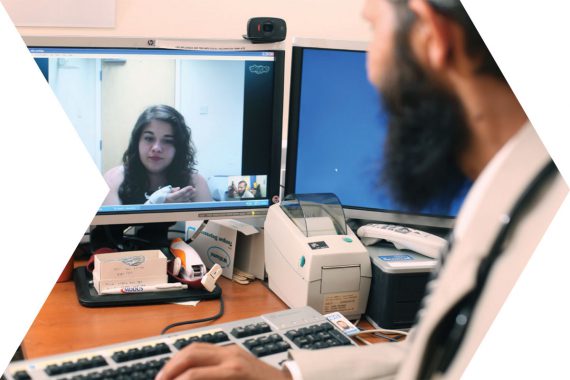Virtual GP cardiology clinic significantly reduces outpatient appointments

Two GP practices in Somerset that introduced ‘virtual’ cardiology clinics have dramatically reduced the number of patients referred to outpatients or needing specialist tests, it’s been claimed.
Over a 13-month period the Skype clinics between GPs and cardiologists held every four to six weeks saved 100 outpatient appointments, data shows.
The team – who have now been running the system for more than two years – say they are planning to scale up to include more practices and potentially other specialties.
Results from the scheme presented at the British Cardiovascular Society annual conference also showed the virtual clinics were safe.
The doctors who designed the scheme say it fits with goals outlined in the NHS long-term plan to streamline services and make use of digital technology to reduce face-to-face outpatient care.
Over the assessment period, 135 patients were reviewed in the virtual clinic with 11% ending up with an outpatient referral compared with 89% who the GP ‘would have’ referred.
The results also showed that 37 patients avoided having to attend hospital for an unnecessary test.
GPs and the cardiologist involved – who still writes to the patients and orders tests when necessary – say it has proved a ‘very efficient’ way to manage patients.
Dr Tom MacConnell, consultant cardiologist at Musgrove Park Hospital in Taunton, said there was often nuances in the patient’s circumstances that the GP could talk about that would not be apparent in a letter or standard referral.
‘It is about shared risk taking and making that decision together. A lot of these patients are older and frail so you don’t want to have to drag them in for an outpatient appointment if you don’t have to.’
The next step is to work out how to scale up the scheme as part of the primary care network, says Dr Harry Smallwood, a GP partner at Taunton Road Medical Centre.
He says anecdotally the virtual clinics have sped up access to tests and specialist care for those that do need it.
‘The next step would be rather than having a virtual clinic in one practice every four weeks there are appointments that GPs could book to chat to the cardiologist.’
Dr Smallwood said the scheme had proven to be really useful and they had been discussing the possibility of a similar approach in neurology but that if resources were to be freed up in hospital, that benefit had to be shared.
‘There is lots of scope but moving resources around needs to be part of it.’
Dr Andrew Green, clinical and prescribing lead of the BMA’s GP Committee said: ‘One of the most pressing, if not the most pressing, issue in healthcare at the moment is workforce, or rather the lack of it.
‘If the NHS is to continue to provide affordable comprehensive healthcare then it is vital that clinicians are used in the most effective way.
He added: ‘Providing the savings that the hospital makes are shared with community services, and GPs are properly paid for their time, then innovative approaches like this should be encouraged.’
However, a recent report found that inadequate internet speeds were holding back GPs from providing efficient care.
Visit Pulse Reference for details on 140 symptoms, including easily searchable symptoms and categories, offering you a free platform to check symptoms and receive potential diagnoses during consultations.









